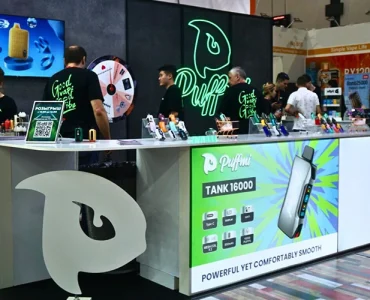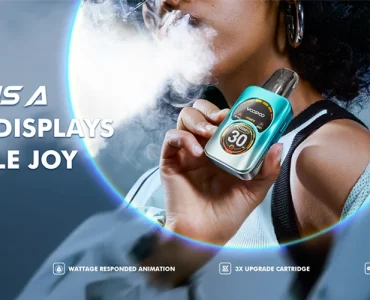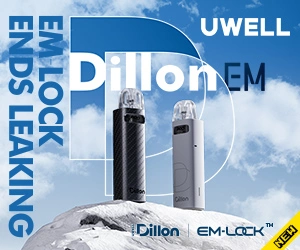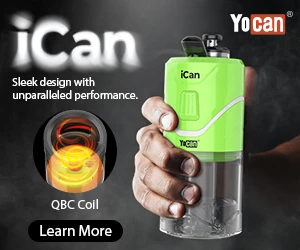The Brazilian Justice Ministry has ordered 32 companies to halt all sales of vapes. This comes as part of a long-term proposal to ban all vape and e-cigarette products at a nationwide level.
This news was released in the September 1 issue of the Official Gazette. The companies in question were given only 48 hours to stop the sales of all outlined products. Any breach of compliance can be met with a daily fine of just under $1,000.
At this time, the proposal of law 5087/2020 is still being considered by the Chamber of Deputies, which is a sub-house of Brazil’s National Congress. Unfortunately, there is not an English copy of the proposal currently available.
Brazil has had a vaping ban in place for over a decade, but it has been widely ignored by the country as a whole.
This new clampdown by officials is likely a reactive response to the continued sales, as well as the increasing popularity of vaping amongst the youth population in Brazil. Additionally, the results of a new study have also played into consideration.
Brazil’s Hopes For Enforcing a Vape Ban
This proposal effectively prohibits “the production, import, sale and advertising of electronic smoking devices, which include electronic cigarettes and heated tobacco products, as well as their accessories and refills”
Brazil has technically had a vaping ban in place since 2009. This came as a result of the country’s federal health regulator Agência Nacional de Vigilância Sanitária (ANVISA) voting to enforce the prohibition on these products at that time.
However, it has largely been ignored by both consumers and retailers. Even retail giants like the French supermarket Carrefour have been found selling vape products in spite of this ban.
This new goal of enforcing a currently useless ban is a result of the alleged findings of a recent study.
“Electronic smoking devices have been on the radar of Senacon for some time now,” said Rodrigo Roca, National Secretary for Consumer Protection. “Anvisa banned trading throughout the country in 2009, but this year she confirmed her position with an in-depth study of the harmfulness, danger, harm that these products cause to human health.”
Brazil Is Choosing Tobacco Over Vaping
A vape ban can easily be considered more problematic than some other instances given the context of Brazil. According to the National Center for Biotechnology Information (NCBI), roughly 9.3% of Brazilians aged 18 and older were estimated to be active smokers in 2018.
This translates to about roughly 20 million smokers. Of course, this does not even take into consideration the underage smoking population.
Furthermore, Brazil also represents the third largest tobacco producer in the world. Brazil collectively produces over 700,000 tons of tobacco every year.
All of this, along with an actively enforced vape ban, means that the population of smokers will likely increase. This should be the number one concern for any country choosing to ban vaping, and Brazil seems even more at risk of this becoming the case.
Additionally, by consistently reinstating an otherwise useless vape ban, Brazil has cultivated a hugely successful, yet unregulated, vape market.
As seen in other countries like Australia, this is where vaping can potentially pose a threat to users – as little to no regulations allows for unethical practices on the part of money-hungry manufacturers.
Other South American Countries with Vape Bans
Brazil is not the only country in South and Central America to impose some measure of a vaping ban. There are multiple countries in this region that have not been the most welcoming in terms of vaping.
While not all of these countries currently have or are proposing a full-blown prohibition like Brazil, the majority of these places have some form of ban in place, particularly the prohibition of sales.
To date, these are the current vape bans in place in South and Central America:
- Argentina – Legal to use, illegal to sell
- Chile – Legal to use, illegal to sell (except approved medical products)
- Colombia – Legal to use, illegal to sell
- Mexico – Legal to use, illegal to sell
- Nicaragua – Believed illegal to use, illegal to sell
- Panama – Legal to use, illegal to sell
- Suriname – Legal to use, illegal to sell
- Uruguay – Legal to use, illegal to sell
- Venezuela – Legal to use, allegedly illegal to sell (unless medically approved)
It can be quite easily noted that these countries, and perhaps South America as a whole, have not committed to the notion of tobacco harm reduction through effective means like vapes and e-cigarettes as some other countries have done.
The goal of enforcing bans to protect the vaping community, while still allowing tobacco products to be sold freely, flies directly in the face of what is trying to be achieved – a healthier, safer population.
In the context of Brazil where the market is operating without regulation due to the existing ban, it is likely to continue to worsen as black markets emerge under the pressure of new, harsher laws. This has already been demonstrated in several other countries and Brazil will likely be no different.
To Summarize
The Brazilian Justice Ministry has ordered 32 companies to halt sales of all vape products. Although Brazil has had a vape ban in place for over a decade, this new suspension of sales is likely a part of a new push for the country to take its vape ban more seriously.
The Brazilian vape community has been relatively unscathed by the ban enforced by ANVISA in 2009, but it appears that things will be changing in the near future. This follows suit with the vast majority of South American countries, most of which already have some form of vaping ban in place.
While some of the Western world is moving forward with tobacco harm reduction plans that include vaping, it appears the Americas are falling behind.










Add comment